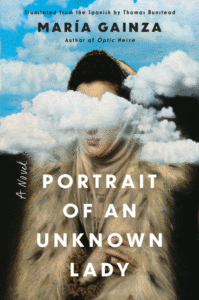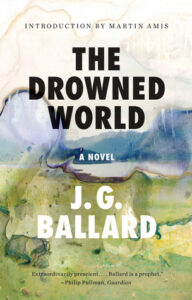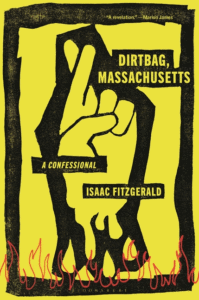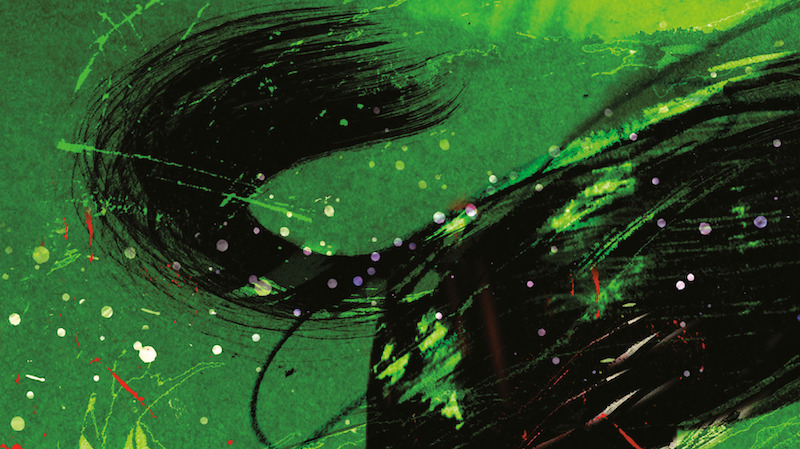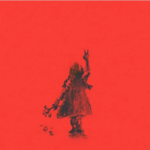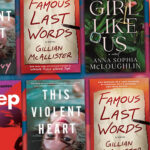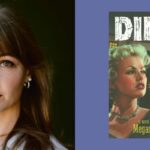5 Book Reviews You Need to Read This Week
Of books by J.G. Ballard, Christopher Hitchens, Isaac Fitzgerald, and More
Our cavalcade of captivating reviews this week includes Christian Lorentzen on Christopher Hitchens’ A Hitch in Time, Sigrid Nunez on María Gainza’s Portrait of an Unknown Lady, Molly Young on Liska Jacobs’ The Pink Hotel, Jason Guriel on J.G. Ballard’s The Drowned World, Michael Ian Black on Isaac Fitzgerald’s Dirtbag Massachusetts.
Brought to you by Book Marks, Lit Hub’s “Rotten Tomatoes for books.”
*
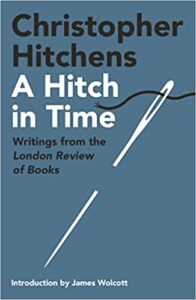
“Some ten years on, we inhabit an altered political and literary landscape. A generation of writers and readers have grown up with no sense of Hitchens before his turn to the right and his barnstorming against the deity … Hitchens was not so arrogant that he ever believed he could bring down Mother Teresa, Bill Clinton, Kissinger, or indeed God Himself. Language for him was a zone of free and fair play abounding with irony and contradiction, necessary conditions of a practice that he never quite forgot was essentially dialectical … smuggling an aesthetic sensibility into his Washington columns and a measure of politics into his fiction reviews. The two projects were united by a prose of knowing restlessness, and it was the prose—fluid, vivid, effortlessly figurative, with a slapstick just this side of bitchy, and in sentences veering between the formal and the vernacular with a high degree of sinuosity—that kept us coming back and kept editors calling … In Hitchens’s writing there were always five characters at work: the cynic, the romantic, the ironist, the idealist, and the materialist. It was the balance and vectors of these elements that changed over time … That he became a cop on behalf of liberalism, at least in his mind, is one of the ironies of his life…he was at his best evaluating the generations that came just before him. It was when he started to conceive of himself as a member of the ruling class, a cop rather than a gadfly, that something was lost.”
–Christian Lorentzen on Christopher Hitchens’ A Hitch in Time: Writings from the London Review of Books (Harper’s)
“Does the reader feel cheated? Not this one. Portrait is a detective story, but not the traditional kind whose mystery demands to be solved. (Think Bolaño rather than Chandler.) Of course not everyone will agree. I am reminded of a photograph, Woman Seen from the Back, by the nineteenth-century French photographer Onésipe Aguado de las Marismas. A woman’s head and shoulders. Beads encircle her neck, and her luxurious dark hair is styled in an elaborate and ornamented coiffure. The fabric that drapes her shoulders is arranged to leave the right one partly bare. Seen from the back: beautiful, glamorous. Years ago, lingering in the packed Metropolitan Museum gallery where this work appeared in an exhibition of photographic portraits, I overheard two kinds of people: those who wanted to know what the woman looked like from the front and those who did not … In both Portrait and Optic Nerve, which have the feel of companion pieces, Gainza has much to say about the creative life, about art and ways of seeing, about perception and reality, authenticity and simulation, fidelity and betrayal. These are matters she takes seriously and about which she writes with exceptional acuity and precision. But the dominant spirit of each novel is one of playfulness and humor … It can be more than a little disorienting at times, not knowing for sure what we are being told is true and what is false and what falls somewhere in between, but that is fitting in a novel so much concerned with misconception and duplicity.”
–Sigrid Nunez on María Gainza’s Portrait of an Unknown Lady (The New York Review of Books)

“One strange element of human behavior is that much of what we call ‘vacation’ involves endlessly tinkering with our body temperatures…The joy of recreation can’t be reduced to the fact that it’s really fun to swivel between hot and cold, but signature vacation moments often involve just that: snuggling up to a campfire on a cold night, plunging into a frigid lake on a sweltering afternoon, coming in from the snow to warm up with cocoa … Jacobs moves fluidly among characters, briefly alighting in one person’s inner monologue before moving to the next. To do so with clarity is a technical achievement, but it presents a narrative conundrum. If the reader is aware of every character’s intentions at all times, opportunities for uncertainty or deception—for suspense and revelation—become scarce … What’s missing in the book is a fresh, revelatory target. Vulgar materialism, climate change denialism, status anxiety and the solipsism of the rich are all implicitly denounced, as is misogyny…As the story proceeds, we wait for the couple to collide with their delusions in a grand reckoning. Eventually they do, but Jacobs hasn’t given them the depth to earn our sympathy.”
–Molly Young on Liska Jacobs’ The Pink Hotel (The New York Times)
“The Drowned World turned 60 this year. It helped launch not only Ballard’s career back in 1962 but also a modern subgenre of sci-fi about climate disasters (later called ‘cli-fi’) that’s now almost as prevalent as carbon…But The Drowned World, one of several early Ballard novels about climate, is not concerned with raising its readers’ consciousness or sounding the alarm about humanity’s carelessness. In the novel, it is solar storms, not fossil fuels, that have warmed the Earth’s atmosphere, dissolved glaciers, and displaced vast quantities of silt. Europe and North America have become sweltering, half-submerged jungles, and what’s left of our species—about five million people—has retreated to the polar caps. The sub-tropical Arctic Circle now clocks in at a balmy 85 degrees Fahrenheit … there’s no such moralizing in Ballard; his approach is as cool as a pair of calipers. Asked by an interviewer if there was a ‘moral purpose’ to his work, Ballard replied, ‘I am not sure about that. I see myself more as a kind of investigator, a scout who is sent on ahead to see if the water is drinkable or not’ … One reads The Drowned World with dread and then, increasingly, fascination: it’s hard not to find Ballard’s contemporary ruins and irradiated jungles seductive. Ballard has suggested that the sight of annual floods in Shanghai might have inspired the novel’s landscape. During World War II, he spent part of his childhood in a Shanghai internment camp…Primal memories appear to have propelled the author as well as his characters. Ballard, who died in 2009, is less a prophet than, as Hitchens came to consider him, ‘our great specialist in catastrophe.’ Like Kerans, ‘a second Adam’ in the book’s closing beats, The Drowned World stands uneasily near the start of a lineage. It won’t compel you to curb your carbon emissions, but it will keep you reading. Come on in, says the catastrophist. The water’s fine.”
–Jason Guriel on J.G. Ballard’s The Drowned World (AirMail)
“Fitzgerald nestles comfortably on a bar stool beside writers like Kerouac, Bukowski, Richard Price and Pete Hamill. Dirtbag, Massachusetts is a book by and for hard-drinking but softhearted men like these, and for those who take voyeuristic pleasure in their ne’er-do-well ways … He writes about the bar with an affection that surpasses any he has for his former lovers, most of whom go nameless in the book … aside from his mother and a porn producer and actress named Princess Donna, women are hardly mentioned in Dirtbag, Massachusetts; the action is nearly all centered on the doings of men. That’s not necessarily a criticism. The book’s charm is in its telling of male misbehavior and, occasionally, the things we men get right. The fights nearly all come with forgiveness. It is about the ways men struggle to make sense of themselves and the romance men too often find in the bottom of a bottle of whiskey. If you’re looking for a book about what’s wrong and right with American men, you could do a lot worse than Dirtbag, Massachusetts … There is much sin in Fitzgerald’s confessional, although none of it mortal. Instead, it is an endearing and tattered catalog of one man’s transgressions and the ways in which it is our sins, far more than our virtues, that make us who we are.”
–Michael Ian Black on Isaac Fitzgerald’s Dirtbag Massachusetts (The New York Times Book Review)



